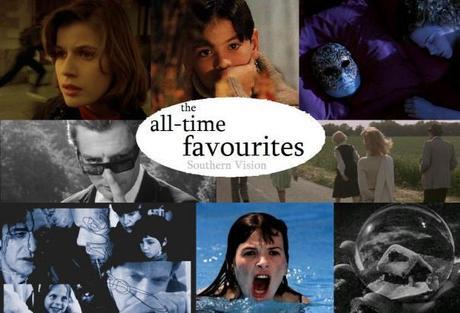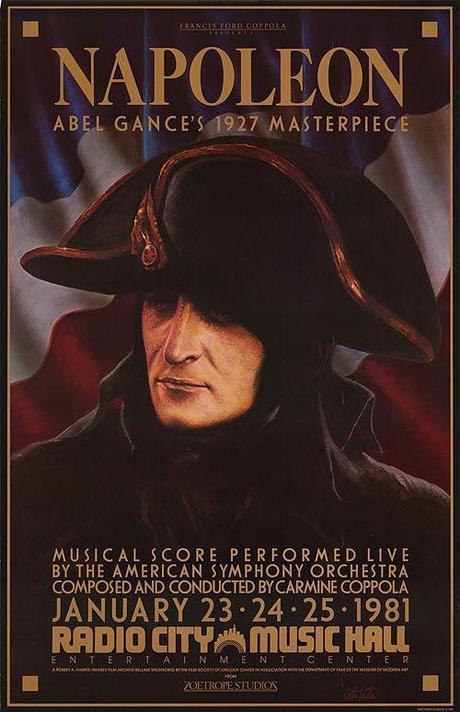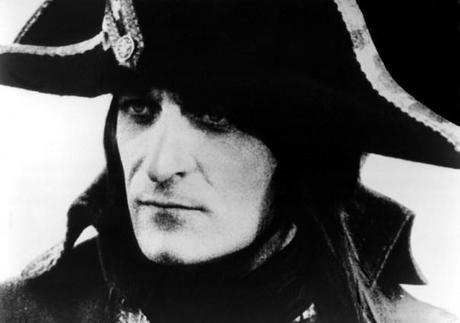
Welcome to the All-Time Favourites Series. This series examines 25 of the greatest films I’ve ever seen, looking at them in depth with analyses of what makes them great, and cutting down to the most basic level, looking at plot, cinematography, writing, direction, acting and other things, to see what makes these great films tick. For more info on the series, click here. This week’s film is Abel Gance’s 1927 silent classic, Napoleon.

Abel Gance is one of the all-time great directors of silent epics. His 1922 film La Roue runs for 273 minutes, and it is only one of his revelatory contributions to silent cinema. In 1927, he released a 378 minute film called Napoleon, which over the years has suffered at the hands of greedy editors. The version I saw, restored by Francis Ford Coppola, ran for four hours, and it was four of the greatest hours of my life. I approached the film with some trepidation, as you do. I mean, who wants to sit down and watch a four-hour silent movie? And yet, my first viewing of it was one of the greatest experiences I’ve ever had watching a movie, and when I saw it a second time after my good friend John at The Droid You’re Looking For called it the greatest French film of all time back in July, I was even more stunned. It has been aching me that I haven’t written about it that much, so in this post I will unload all about my love for this, the greatest film of the 1920s.

This film tells the story of Napoleon Bonaparte, a story many of us will know well enough. It starts with his childhood, in which he would lead viscious and exciting snowball fights with other kids. It documents his rise to power and portrays him as neither evil nor heroic, but simply deeply stirred by ghosts and spirits to lead France into battle and to succeed. Bonaparte is not portrayed as a thinking man, nor a spontaneous or unpredictable man, but simply a determined one. The soundtrack, which may differ depending on which version of the film you watch (mine was the Coppola restoration, and I believe the score was recorded by Carmine Coppola), is rousing and brilliant. It captures a mood of excitement and battle that is more expressive and effective than you could imagine from a silent movie.
Gance’s direction is that of a revolutionary; one could say that what Bonaparte did for history, Gance did for filmmaking. He made his mark by never being afraid, and always being daring and original. There are many remarkable sequences of astonishing creativity, such as the famous shot in which Gance quite literally swung the camera over a magnificent ballroom to capture the frenzied excitement of “La Marseilles.” And there is the movie’s conclusion, for which Gance used three cameras and three projectors to create “Polyvision,” a split screen technique which allowed the audience to see things happening on three cameras at once. Though the technique is used without fuss today, it was startling in 1927 and proved that Gance was a filmmaker of bold creativity and daring originality.

Yes, Napoleon is four hours long. But it earns your attention. It grabs you and holds you in its grasp. It is quite possibly the greatest biopic ever made, and it does it without the usual clichés that are thoughtlessly used repetitively in today’s films. There are no bold speeches spoken with vigour and passion (it’s a silent movie, remember?) and there is no tearful deathbed scene in which the hero passes his legacy on. It simply grabs the audience and throws them right into the middle of the action, the methodical planning, and the brilliance of one of history’s most iconic and important leaders. I have only seen Napoleon twice in its entirety, yet I admire it in a way I admire no other film. It is truly a remarkable, sensational experience, and a “must-see” if ever there was one. Napoleon does not answer questions or solve crises so much as it delights in the telling of them and the experience of living them. It really is superb in every way, and fans of silent cinema (or just cinema in general) owe it to themselves to give it a try.

–

